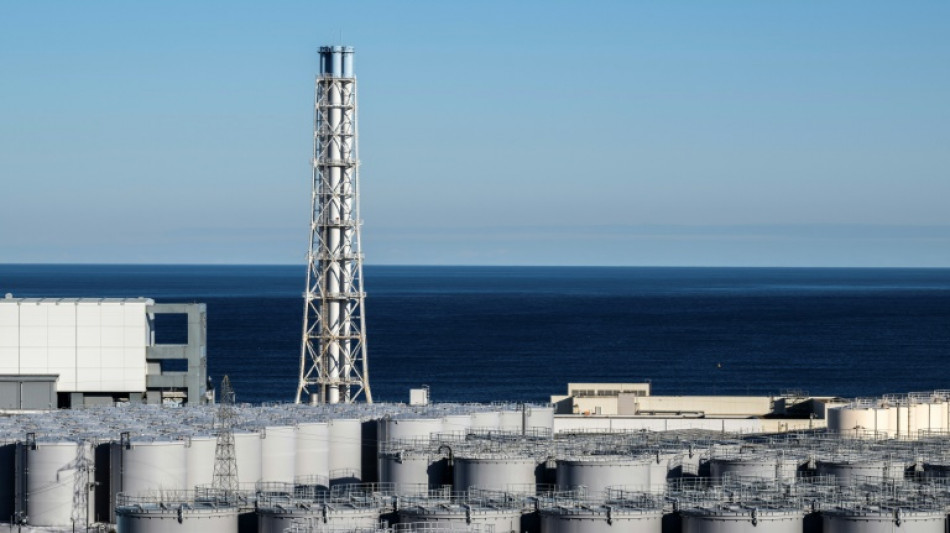Japan PM to visit Fukushima plant before water release / Photo: Philip FONG - AFP/File
Japanese Prime Minister Fumio Kishida said he will visit the Fukushima nuclear plant on Sunday, ahead of the discharge of treated water which is scheduled to begin by the end of summer.
Tokyo's plan to release treated water from the tsunami-hit nuclear plant into the sea over the next few decades has raised concerns in neighbouring countries, prompting China to ban some food imports and sparking protests in South Korea.
Kishida, who was in Washington for a trilateral summit with US President Joe Biden and South Korean President Yoon Suk Yeol, told Japanese reporters he would visit the plant on Sunday following his return to Japan.
"The release of treated water is an issue that cannot be postponed in order to make steady progress with decommissioning and the reconstruction of Fukushima," he said.
Kishida said the government was at "the final stage" of making a decision but declined to comment on the exact timing of the release.
The prime minister said he hoped to meet "at some stage" with the head of Japan's fisheries cooperative federation, which has been against the release plan.
The discharge will reportedly begin as early as the end of this month.
Last month, plans to release treated water from the plant cleared their final regulatory hurdle, with the endorsement from the UN nuclear watchdog.
Some 1.33 million cubic metres of groundwater, rainwater and water used for cooling have accumulated at the plant, where several reactors went into meltdown after the 2011 tsunami overwhelmed cooling systems.
Storage space is running out, but plans by Japan and plant operator TEPCO to release the water into the sea have run into local and regional opposition.
The International Atomic Energy Agency said the discharge would have "neglibigle" effects on the environment and was in line with water releases from nuclear plants elsewhere.
The Japanese government has spent months trying to win over public opinion at home and abroad, with everything from study tours of the plant to livestreamed experiments keeping marine life in the treated water.
But neither those efforts nor the IAEA's approval, have won over Beijing.
China has said it would ban food imports from 10 Japanese prefectures over the release, and require stringent radiation tests on food from the rest of the country.
In South Korea, public concern about the plan remains high, but its government said its review of the plan found it in line with international standards.
N.Sabharwal--BD
